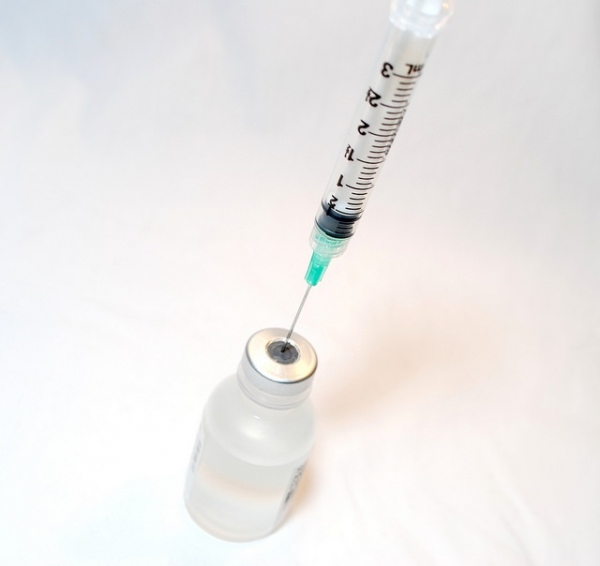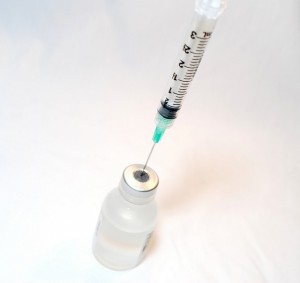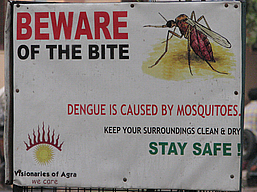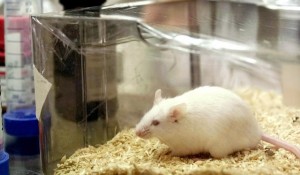August 7, 2014 -If there is one field in science and technology that is seeing demonstrable advances in the last two decades, it is biomedicine. The unlocking of the genome and advances in immunology are leading to the invention of new treatment protocols and the development of new drug therapies. It cannot be happening too soon considering new epidemics, the spread of tropical diseases into more temperate latitudes and the challenge of increasing dementia within an aging population. In this posting we begin with the latest news on Ebola, then Dengue and finally Alzheimer’s.
Ebola and a Potential Cure
This week Ebola deaths from the outbreak in West Africa approached 1,000 with case totals nearing the 1,800 mark. When I last wrote about Ebola I mentioned that there was no vaccine in the works. Apparently I was wrong. Two American aid workers who were infected while in Liberia have, in fact, received experimental treatment using an unlicensed drug. It is called ZMapp. It is not a vaccine to prevent Ebola, but one when administered after the symptoms appear, “neutralizes the virus so it can’t do any further damage.” That’s a quote from Dr. Heinz Feldmann of the American National Institute of Health.
Feldmann, who works at a virology laboratory in Hamilton, Montana, formerly oversaw a program at Canada’s equivalent to NIH, a national microbiology laboratory located in Winnipeg. Canadian and U.S. researchers created “a cocktail of antibodies” to neutralize the virus.
But ZMapp isn’t even in clinical trial as of yet. The American aid workers so far are the only ones to receive this experimental drug. No one for sure can definitively prove that the drug is the reason that both Americans are showing improvement in fighting off the virus. Their recovery may be the luck of the draw. But exclusive access to ZMapp is raising eyebrows among countries in West Africa where the bulk of those infected are located. One of them, Nigeria has formally requested access to the experimental drug.
For Nigeria, Africa’s most populous country, and one fractured by a low-level civil war in the north, getting control of Ebola is critical. The first Nigerian cases came to the country when an Ebola-infected person traveled by airplane from Sierra Leone to Lagos. He transmitted the disease to health workers in the hospital where he was treated and died. He probably exposed a number of passengers to the disease while in transit and on the flight. Nigeria has been tracking down as many passengers as they can identify and isolating them for the incubation period which can last up to 21 days. But what about passengers who were in transit to other countries on that same flight?
The dilemma for the scientists who worked on ZMapp is this. “We don’t even know if it works,” says Dr. Anthony Fauci of the National Institute of Health. Concocted from three antibodies that attach to the Ebola virus so the immune system can find and attack it, have been culled from laboratory mice. These are being grown in tobacco plants. The quantities available right now are miniscule. To ramp up production could take several months.
In other Ebola news an experimental blood test to detect the virus at early onset has been developed by the U.S. Department of Defense. Currently it is not yet released for larger use but with World Health Organization emergency meetings in the coming weeks we may see pressure brought to bear to make both ZMapp and the blood screening test more widely available.
Dengue Vaccine – When?
Dengue fever infects 390 million people every year. Most of these live in the tropics but the disease is moving towards the poles as climate change gives the mosquito carrier new environments in which to thrive. Dengue is debilitating and seldom fatal. It comes in flour flavors. Those infected by one of the four, upon recovery, develop immunity to that particular flavor. But they can still be infected by one of the other three types of Dengue.
So Dengue isn’t Ebola. Those most at risk are children. That’s why Sanofi Pasteur, the pharmaceutical company, is sponsoring development of a vaccine which will become commercially available in 2015. The vaccine is in clinical trial currently in Southeast Asia where 70% of global reported cases of Dengue can be found. It involves 10,275 children between the ages of 2 and 14. Each chld receives three doses 6 months apart. A second trial in Latin America involves 20,000 children between the ages of 9 and 16. So far immunity responses appear to be best in older children between 12 and 14 years of age.
How was the vaccine created? By isolating surface proteins from the dengue virus and inserting them into the yellow fever virus. The vaccine that will be released in 2015 currently works on three of the four types of Dengue.
Drug Reversing Alzheimer’s in Mice
A new study revealing a drug that reverses brain deficits in mice made me think of John Steinbeck, who wrote the play, “Of Mice and Men.” When choosing that title I doubt that Steinbeck was thinking of the peculiar relationship we humans have with laboratory mice when looking for cures for diseases. What we often first discover working in mice doesn’t necessarily translate to a cure in men, but it does help advance the science.
Yale School of Medicine is the location of this latest Alzheimer’s Disease discovery, a drug compound that reverses brain deficits. Called TC-2153, the drug works on a protein that regulates learning and memory. Called STtriatal-Enriched Tyorsine Phosphatase (STEP), the protein negatively impacts learning and memory. By reducing STEP levels in the body the researchers improved the cognitive capabilities of the mice used in the study.
The researchers are now testing the TC-2153 compound in rats and primates to see if results translate across species. If results show cognitive improvement in these larger animal studies then a drug for humans may not be far away.
Was Steinbeck prescient?












